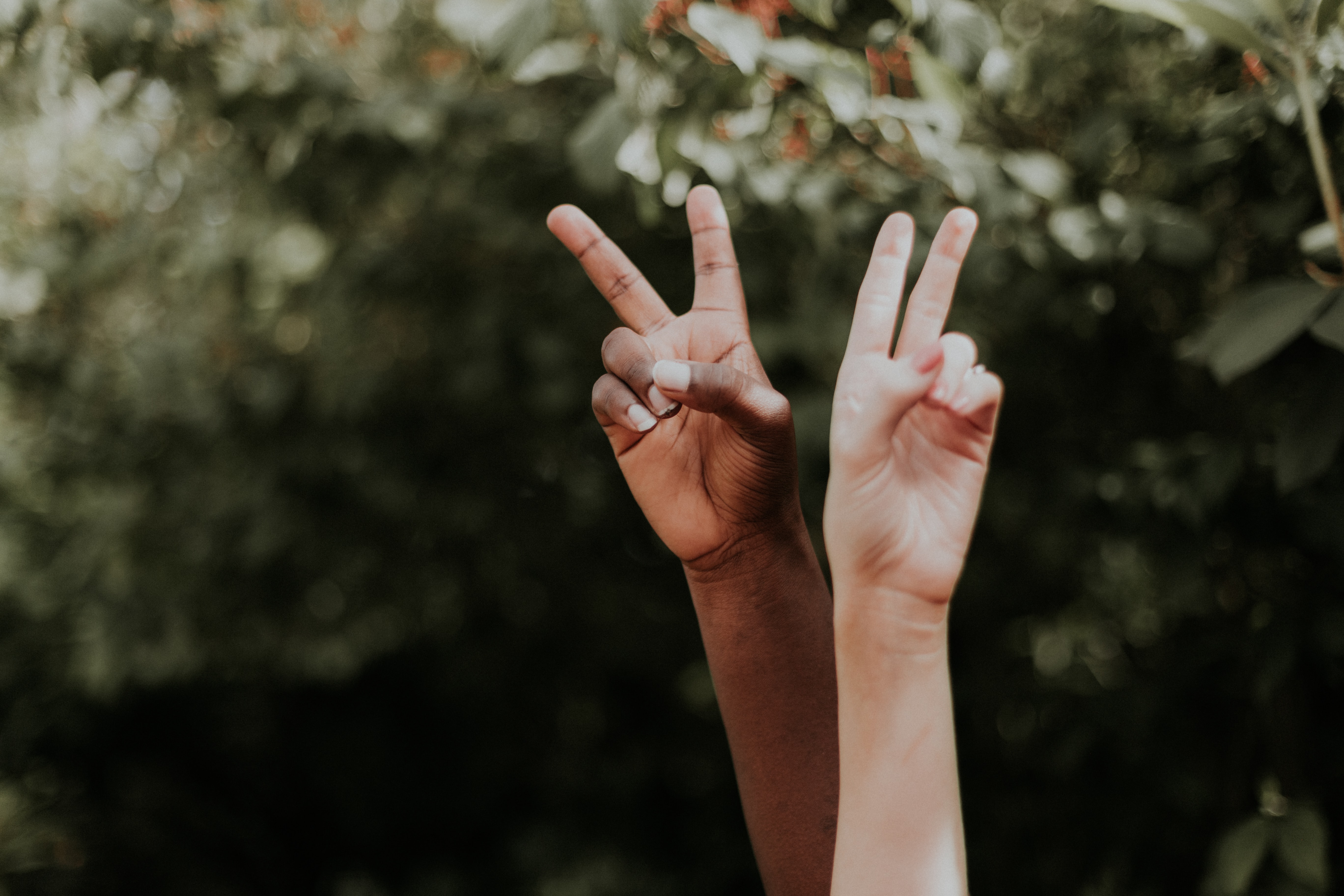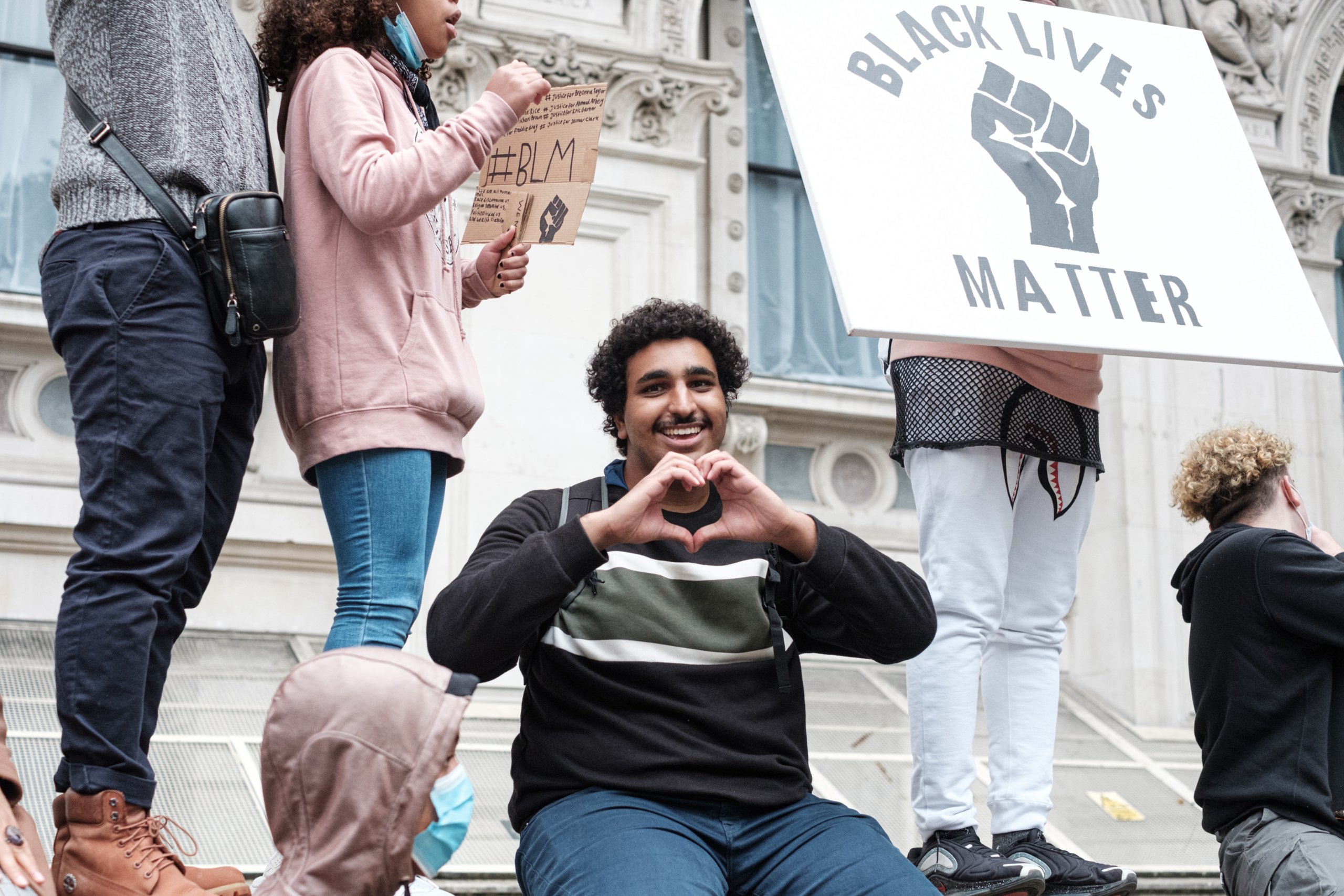Following the murder of George Floyd by Minneapolis police, the past few weeks have been heartwrenching for the United States, particularly for the Black community. However, on top of the socioeconomic inequalities highlighted by the COVID-19 pandemic, this time has also felt like a tipping point as Black and non-Black people work together to fight injustice.
As we see when loving someone with different political beliefs, confronting these issues with loved ones can often feel like we’re speaking an entirely different language. Change starts with each one of us but arguing, no matter how worthy the cause, can inadvertently lead to more hurt and less progress. Here are tips for handling healthy conversations with your partner about crucial issues like a pro.
1. Communicate from a place of empathy

When we are having conversations about justice and inclusion, it’s important to recognize that people of different ages, races, and backgrounds have had access to different levels of education around these issues; and each individual brings to the conversation their own unique lived experience. Even if you totally disagree with someone, villainizing people and entire movements will not change their minds.
At One Love, we focus on specific behaviors to recognize and change in a relationship for two reasons: it’s much easier to get people to see your point when you’re not pointing the finger at them and minimizes any knee-jerk reactions to deflect or shut down the conversation completely. Try it for yourself. The next time you and your partner discuss Black Lives Matter try pointing out specific issues and behaviors the movement is working to change as well as their impact, and remember to always communicate from a place of empathy and respect.
2. Recognize that you might be using different words

When discussing realities of oppression and systemic violence, people who aren’t as familiar with these concepts aren’t going to accept truths that are so obvious to you instantaneously or overnight. It’s like knowing the difference between “prejudice,” which can be directed at anyone of any group and includes stereotypes, and “racism”, the structural and systemic oppression of certain groups, and trying to explain them to a person who has been using them interchangeably for years. Like anything in life, effective communication depends on using a common language you both understand.
Here’s a tip: The next time you feel like you can’t get on the same page with your partner about a certain issue, take a step back and define the terms you’re using and exactly what you mean when you use them. Chances are you’re both makings similar points albeit stated differently.
3. Reflection takes time

Getting defensive is natural when someone’s long-held views are challenged and questioned. You might feel just as defensive if someone said a particular behavior you’ve done forever was unhealthy. That’s why it’s important to give your partner time to think and reflect in their own time; change doesn’t happen overnight, and everyone comes to these realizations at their own pace. What matters more than getting your partner to see your point of view is that your relationship is a safe space for you both to express your opinion, even if they oppose one another.
Quick tip: Validating someone’s perspective, ironically enough, makes them more open to change and working towards a world truly built on justice for all.
Model the way forward
As I’ve reflected on what I can do to work towards racial and social justice in my daily life, I’ve been focusing on educating myself so I can educate others. This means following more Black creators on social media. Reading books (I’m starting with White Fragility, but here’s a whole list). Calling out racist and inappropriate language, jokes, and small acts of bias that add up. Perhaps most difficult, having conversations with loved ones who may not be so understanding.
I’m still learning about these complex issues. You can share helpful resources like books and social media posts with your partner or family member, you can debate until you run out of words, but it’s on them to listen and learn.
RELATED: Let’s Talk About Locker Room Talk
Remember, growth hurts

These conversations will be tough.
Small disagreements will usually blow over. If you and your partner are willing to discuss and more importantly, to listen to one another respectfully, you’ll likely be able to move forward together, stronger than ever.
Find more tips about handling conflict in your relationship here.








